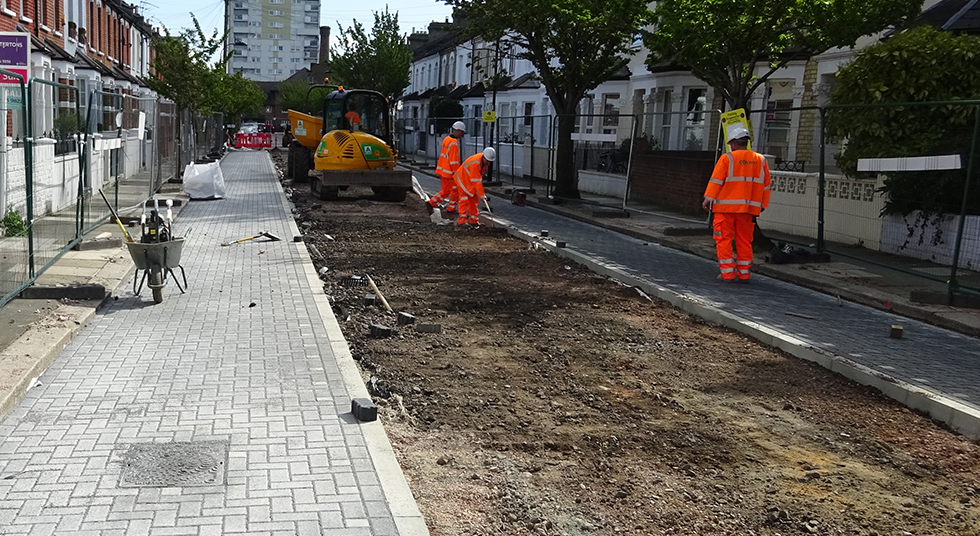A Sustainable Approach To Surface Water Management
Description of Works
Thames Water advocated an approach to sustainable drainage systems (SuDS) that limits, as far as possible, the volume of and rate at which surface water enters the public sewer system. By doing this, SuDS have the potential to play an important role in ensuring that the sewerage network has the capacity to cater for population growth and the effects of climate change.
Working on behalf of a partnership between Thames Water, the London Borough of Hammersmith and Fulham and the Royal Borough of Kensington and Chelsea, FM Conway supported an innovative trial to retrofit SuDS in three streets in West London, providing the opportunity to measure the volume and flow of surface water through flow monitors that were installed at each street.
.jpg)
